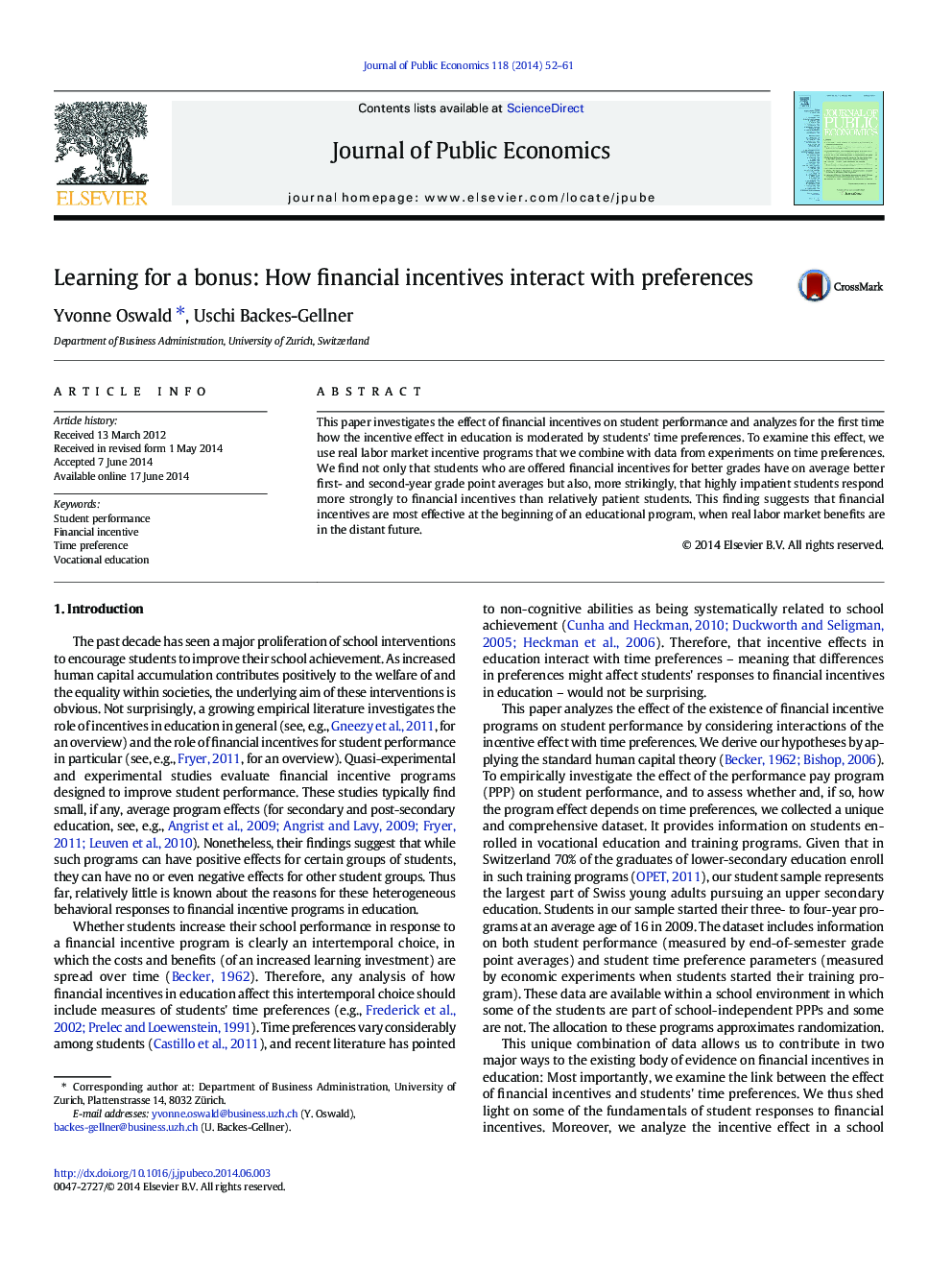| Article ID | Journal | Published Year | Pages | File Type |
|---|---|---|---|---|
| 7370217 | Journal of Public Economics | 2014 | 10 Pages |
Abstract
This paper investigates the effect of financial incentives on student performance and analyzes for the first time how the incentive effect in education is moderated by students' time preferences. To examine this effect, we use real labor market incentive programs that we combine with data from experiments on time preferences. We find not only that students who are offered financial incentives for better grades have on average better first- and second-year grade point averages but also, more strikingly, that highly impatient students respond more strongly to financial incentives than relatively patient students. This finding suggests that financial incentives are most effective at the beginning of an educational program, when real labor market benefits are in the distant future.
Related Topics
Social Sciences and Humanities
Economics, Econometrics and Finance
Economics and Econometrics
Authors
Yvonne Oswald, Uschi Backes-Gellner,
